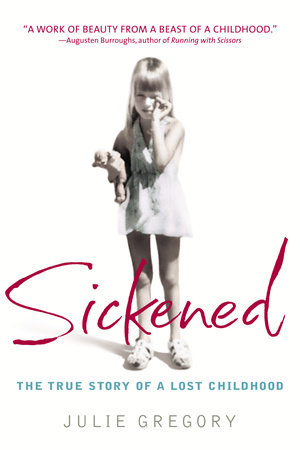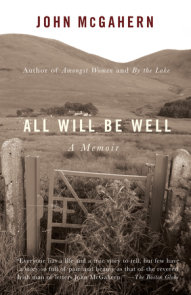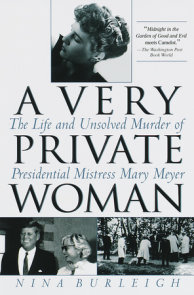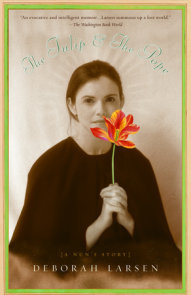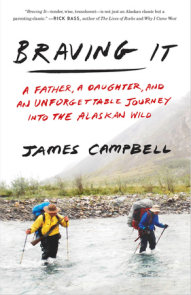READERS GUIDE
Featured on “Dateline” and “Today,” Julie Gregory’s courageous memoir brought a wide audience to a topic that had previously languished in the shadows. The first book by a survivor of Munchausen by proxy (MBP), Sickened describes both a dark history of abuse and a remarkable triumph in mind, body, and spirit.Writing in an unflinching, arresting voice, Julie recalls the bonds of terror and destruction that imprisoned her from childhood through her early adult life. Her mother subjected Julie to years of procedures and medications. Within this frightening cocoon of mental illness, Julie’s mother thrived on rage, leaving Julie prepared to sacrifice herself if that’s what it took to win her mother’s happiness. Despite the astonishing naïveté of doctors and social workers who could not see the truth, Julie at last embarked on an inspiring metamorphosis, finding her own way to healing and safety.
The questions and discussion topics that follow are intended to enhance your reading of Julie Gregory’s Sickened. We hope they will enrich your experience of this unforgettable and important memoir.
Questions and Topics for Discussion
1. What parallels did you notice between Julie’s family dynamic and that of her parents? In what ways was abusive behavior perpetuated across generations? Why is it often so difficult to end these destructive cycles?
2. Compare the various ways in which illness, both mental and physical, plays out in the memoir. Are there common threads between Dan’s side effects from Agent Orange and Sandy’s obsessive collecting? Would an inventory of the family’s symptoms contain any themes?
3. In what way is racism a reflection of Sandy and Dan’s paranoia and quest for supremacy? Or do you view their hatred of nonwhites as a cultural phenomenon? How does Sandy’s insistence on bleached-blond hair factor into these assumptions based on appearance?
4. What gender lines were drawn for Julie as a child and teenager? What was she taught to assume about men, especially the role of older men, and sexuality? Who had the most power in the Gregory household?
5. Do you believe that Sandy took in children and veterans for financial reasons only, or were they essential to her psychopathic illusions? When she forces Julie to inflict punishment on the foster children, what truths about the nature of sadism are revealed?
6. In his foreword to Sickened, Dr. Marc Feldman writes that though the disease was named in 1951, it still remains a subject of contentious skepticism in many medical circles. Why is it so difficult to accept? Why did Julie have to explain MBP to her counselors, rather than receiving the therapeutic treatment she needed? What does this resistance indicate about the nature of diagnosis and healing in general?
7. Malnutrition was a primary factor in Julie’s de facto illness, leading to symptoms of anorexia nervosa later in her life. What does the concept of hunger represent to her? Why is Sandy intolerant of Julie’s attempts to help Tina nourish herself?
8. Julie says that truth is whatever your mind believes. What does this memoir demonstrate about how our self-perceptions are shaped? How easy was it for her to believe that she was neither attractive nor smart, and that only her parents could protect her from the ridicule of society?
9. Discuss Julie’s writing style, especially her use of imagery. Books were her bridge to healing; how has she used language to create a bridge for others?
10. Do Julie’s parents appear to have any genuine religious faith? How is Julie eventually able to feel a sense of wonder and joy about God?
11. What does Julie’s experience indicate about the safety nets in place for other abused children? Does our society offer a better alternative to parental abuse?
12. How has the book changed your perspective on parenting and MBP in general? What solutions for discerning the truth and keeping children safe could you propose now?
13. Through medical records and photos, Sickened presents the evidence of MBP itself. How might you have perceived these artifacts had you not read the book? Do they speak for themselves?
14. What sets Julie’s story apart from other memoirs of childhood trauma? In what ways does it enrich the collective experience expressed in this genre?









